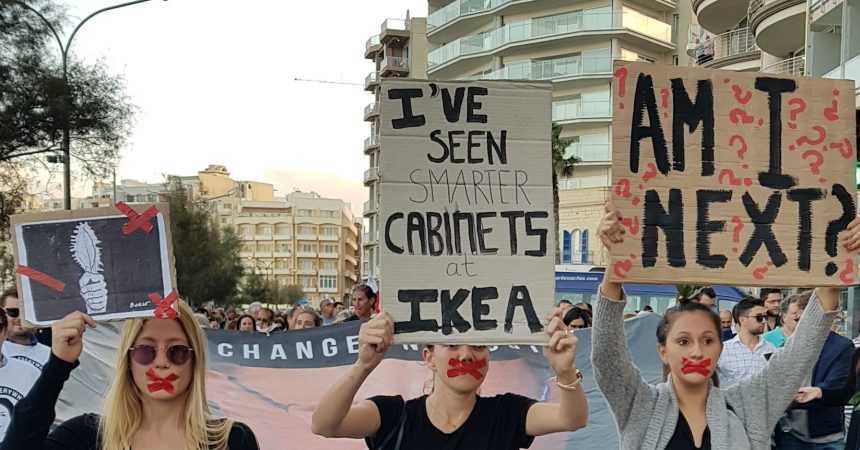So how come Malta has come so far in LGBTIQ rights but is still lagging behind in women’s rights? Probably it’s because the LGBTIQ community is organised.
It is almost the end of 2017 and in Malta we still cannot discuss abortion. Malta is the only country in the EU, bar the Vatican City, which has a blanket ban on abortion. Many will tell you we don’t need to entertain such discussions because if a mother’s life is in danger, the law of double effect will always come into force and as such a mother’s life can be spared. Of course, that logic dismisses other reasons why a woman would choose to have an abortion and it still doesn’t change the fact that in the eyes of our Constitution even the concept of double effect is illegal. But this is not a piece about abortion, this is a piece about women’s rights, the role of women in society and the need for a women’s movement.
I started thinking about this after Michael Briguglio, speaking at the first Civil Network Society rally in memory of Daphne Caruana Galizia, spoke about how far Malta has come when it comes to LGBTIQ rights and yet how, as a country, we have taken a few steps back when it comes to basic rights such as freedom of speech. The critique Briguglio received was that LGBTIQ rights are always used as some kind of political football, which unfortunately is true, but his essential point was right: there is still a huge disparity when you compare LGBTIQ rights to, amongst others, women’s rights.
In December 2016, as Malta was set to become the first European country to ban gay conversion therapy, the BBC published an article titled ”Malta’s paradox: A beacon of gay rights that bans abortion‘, asking why Malta’s abortion laws remain among the strictest in the world.
Probably this is a result of a patriarchal society, but the effects extend farther than just abortion and also encroach on rights about body autonomy. Women in Malta had to wait until 2016 before they could legally buy the morning after pill over the counter from a pharmacy. The discussion prior to that was riddled with misinformation and tales of doom. Pharmacists came out in droves to protect their right to conscientious objection because they believed that the MAP would interfere with implantation even though the most recent studies (studies by the World Health Organisation and The International Federation of Gynecology and Obstetrics) prove that it doesn’t. And this discussion only came to be because a group of women decided to file a judicial protest demanding the government reviewed its stance on emergency contraception.
Another case of men interfering in women’s reproductive rights and their body autonomy is when it comes to tube ligation. Many women have reported being turned down from the procedure because they are still young and of prime childbearing age, further reinforcing the assumption that a woman’s only scope in life is to bear children.
So how come Malta has come so far in LGBTIQ rights but is still lagging behind in women’s rights? Probably it’s because the LGBTIQ community is organised. They have a unified movement which has been working for years to get to this point and kudos to them. Anyone, whatever their gender or sexual orientation, should be free to live the life they want to live. So it is clear that if women in Malta really want to be treated as equals there needs to be a grassroots movement advocating these ideals. Joseph Muscat might say he has the most feminist government in history but more needs to be done for this government to be recognised as such. And, of course, I’m not even going to mention Adrian Delia considering he has already waged war against women with his first parliamentary vote.
If the LGBTIQ community taught us anything it is that women need a movement they can get behind. Now more than ever we need a common voice that unites us. If women want equality, if they want body autonomy and full grasp of their reproductive rights, if they want to fill parliamentary seats and be in decision-making positions, then there is only one way this can be done, and that’s through mobilisation.














70 years after the first time women voted, Malta needs a female leader who can galvanize this sick society which at the moment adores money as its god to a society based on values and principles with a constitution guaranteeing the independence of the judiciary, police, public broadcasting and prosecutor, A leader who will promote respect, good governance, family and meritocracy. A society based on purely economic kpis like GDP, employment, etc is a society built on sand.